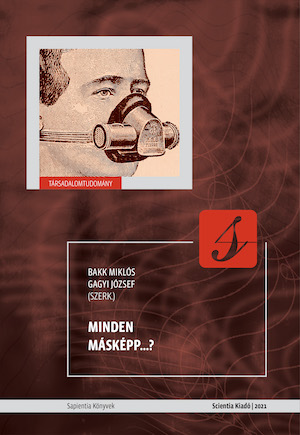DEMOKRÁCIAELMÉLETI TÁJKÉP A PANDÉMIA NYOMÁN
A LANDSCAPE OF THEORIES OF DEMOCRACY IN TIMES OF PANDEMIC
Author(s): Miklós Bakk
Subject(s): Comparative politics
Published by: Scientia Kiadó
Keywords: pandemic; progress of democracy; historical analysis; hybrid regimes; crisis management;
Summary/Abstract: During the pandemic that marked the year 2020, it was not possible to decide whether dictatorships or democracies were more successful in dealing with the epidemic. Debates about the essence and nature of democracies appeared when it became clear that the “progress of democracy” recoiled in some states, thatthe “waves of democratization” had not resulted in liberal democracies, as it was anticipated in the early 1990s. A historical analysis of this has made it clear that a dichotomy which interprets the development of political regimes in a rigid manner, as a rectilinear way from autocracies to democracies, cannot give answers to all questions. In this moment, a new concept emerged, the theory of the “hybrid regimes”, attempting to classify and interpret the “transitional” forms of regimes between the ideal type of liberal democracies (otherwise undefined) and the autocracies (or dictatorships). There are several approaches, including: 1) hybrid regimes as incomplete, damaged democracies; 2) hybrid regimes as forms of breakup or transformation of autocracies; 3) hybrid regimes as specific systems, defined by specific historical circumstances that cannot be clearly deduced from either democracies or autocracies. These attempts of typification are complemented by a newer approach, which, based on the concept of “leader democracy” (András Körösényi), puts in the forefront government action, trust in leadership instead of the procedural legitimacy of democracies, and thus it places the debate “democracy vs. hybrid regime” in a new context. During the pandemic, this approach has become particularly relevant; the crisis can only be dealt effectively by strong governments that sometimes suspend the usual system of checks and balances in democracies. Therefore, understanding the nature of hybrid regimes and a comprehensive examination of crisis management as political action can provide very important considerations for the understanding of democracies in a broader context.
Book: Minden másképp...?
- Page Range: 133-144
- Page Count: 12
- Publication Year: 2021
- Language: Hungarian
- Content File-PDF

